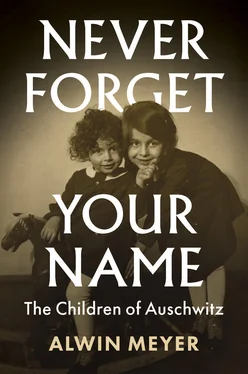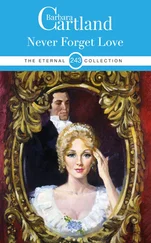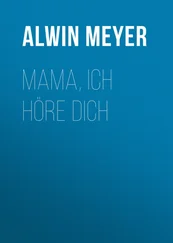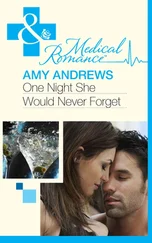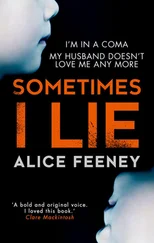‘At first I didn’t understand what it all meant. What had the Jews or I done to deserve that? I didn’t even know what Palestine was.’ He thought about it a lot, and throughout his life it always hurt him deeply inside.
On 14 March 1939, the day before the German Wehrmacht invaded Bohemia and Moravia, the declaration of independence by the vassal Slovakia, the first puppet state of Nazi Germany, was announced. Prior to this, leading Slovak politicians had promised the German Reich that they would settle the ‘Jewish question’ on the German model. An authoritarian antisemitic one-party government, Hlinka’s Slovak People’s Party (named after a Slovak nationalist and anti-Jewish priest and politician), came to power. A month later, on 18 April 1939, the first antisemitic regulations were promulgated by the Slovak government. The number of Jews in the professions was drastically reduced. From then on, Jewish lawyers could only represent Jews, Jews were not allowed to have a concession for a public pharmacy, Jewish journalists could only work in Jewish newspapers, and the number of doctors with practices was limited to 4 per cent of the members of the Medical Council. 54
It became more and more dangerous for the Kornfeld family to go out onto the street. Harassment and organized attacks on the Jews of Bratislava increased.
The Hitler Youth, the Hlinka Guard and the voluntary Schutzstaffel [paramilitary units formed by the German minority in Slovakia] beat up us Jews more and more frequently, quite brutally. For example, there was a poor Sudeten German family, whom my father had always helped. They had several children, and my father often gave them bread. Later, one of these sons joined the German SS, and one day he came and beat up my father. That was how he showed his thanks for our help. It was a terrible experience.
In 1940, there were around 18,000 Jews in Bratislava, one-fifth or one-sixth of the total number of Jews in Slovakia. There were several synagogues, eleven batei midrash (Talmud colleges), two Jewish cemeteries, a hospital, an old people’s home, an orphanage, a large community hall and library, several banks, chemists, insurance companies, fifty Jewish doctors, sixty-five lawyers and thirty engineers. 55
Between 1938 and 1942, the situation of the Jewish inhabitants of Slovakia became intolerable. ‘The political climate was threatening. Our synagogues were destroyed, Torah scrolls torn and thrown onto the street. And we Jews were increasingly attacked and beaten bloody.’
The systematic anti-Jewish legislation by the Slovak state meant that only small amounts could be withdrawn from Jewish bank accounts. Or that ‘we Jews were basically banned from visiting restaurants, theatres or cinemas, or from entering public swimming pools or parks’. Jews were also banned from living in certain areas and in streets named after Hitler and Hlinka. This applied to 10,931 Jewish homes in fifty-two larger towns, where 43,124 Jewish children, women and men had lived before being forced to move.
The Kornfelds were also obliged to move. ‘We moved three times, I think. Once to near the Jewish school. That was still a good area. From there we moved to the Jewish ghetto’, where they remained ‘until the end’. Eduard’s father had first had to give up his linen goods shop ‘because Jews were no longer allowed to reside in that area’. In order to feed the family, he bought a bakery near the ghetto.
‘One day he had to give up this business as well.’ Jews were to be fully excluded from the Slovak economy. Within a short time, over 9,000 Jewish businesses – like Simon Kornfeld’s – were liquidated and over 1,800 ‘Aryanized’, in other words transferred to non-Jewish owners. 56
Following the introduction of the Jewish Codex in autumn 1941, marriages between Jews, or ‘Mischlinge’, and non-Jews became a punishable offence. Extramarital sexual intercourse between them was deemed to be ‘race defilement’. From 22 September 1941, the date of Rosh Hashanah, the Jewish new year – ‘certainly no coincidence’ − all Jews over the age of 6 had to wear a ‘Jewish star’.
Finally, by 1 March 1942, 6,720 Jews were banished from Bratislava to the provinces. Those destined for ‘dislokácia’ were barely allowed to take anything with them. Their property was seized and sold and the proceeds used to cover the costs of the deportation. 57The Kornfelds were able to remain in the city but lived ‘in permanent and all-consuming fear’. ‘We didn’t know in the evening what would happen to us the following morning, and in the morning whether we would still be in the city in the evening.’
Robert Büchler was 8 years old, his sister Ruth 6, when the satellite state Slovakia was created ‘by the grace of Germany’ following the declaration of independence on 14 March 1939. Now Topol’čany was also ruled by the chauvinist and antisemitic Hlinka party.
‘We weren’t very afraid. It was a time of deliberation. There were no major antisemitic demonstrations in our town. It was relatively quiet, albeit unsettling.’
In autumn 1939, Minister of the Interior Alexander Mach and Minister of Foreign Affairs Ferdinand Ďurčanský, two leaders of the Nazi government of Slovakia, visited Topol’čany. They addressed a large crowd from the town hall balcony. During the event, they pointed to the Jewish businesses on the market square and predicted: ‘The day is not far off when all this will be in Slovak hands.’ 58This was despite the fact that the Jewish families were also Slovak citizens.
In September 1940, Robert, who attended the Jewish primary school, was not allowed to go to the state grammar school. In a decision of 13 June 1939, the Slovak government had effectively banned Jewish pupils from attending state schools. 59The Jewish children were only allowed to attend Jewish primary schools or classes. The Jewish community of Topol’čany decided to enlarge the Jewish primary school to eight classes. But the school building was seized in 1942. Classes stopped but were later resumed, for the few remaining Jewish children spared from the Nazi actions, in the Jewish old people’s home. In 1944, the school closed for good. 60
The company where Robert’s father worked was ‘Aryanized’ and taken over by the state. It was transformed into a monopoly called Slovpol. Josef Büchler lost his position as Prokurist (authorized signatory) but was allowed to remain in the company. ‘My father was important for the Slovak economy.’
The family lived outside the town in a rented two-family house. The other family were Christians – the husband, head of the local council.
‘We were always close to this family. My parents organized a New Year’s Eve party and they were naturally invited. And at Christmas there was always a present for my sister and me under the Christmas tree.’ Robert was good friends with the family’s daughter, who was his age. They were together every day, went fishing and even went on holiday together. ‘That might have been an exception, but it nevertheless existed as well.’
In 1940, the Büchlers were evicted from the house. ‘A Slovak simply threw us out. He wanted to live there. It was as simple as that.’ The Büchlers were lucky and found a ‘fine apartment’ in a working-class district.
Gábor Hirsch Persecution of the Jews was in full flow throughout Europe. ‘Our teachers’, says Gábor Hirsch from Békéscsaba in south-eastern Hungary, ‘made antisemitic comments. We Jewish pupils were not allowed to participate in the “levente” paramilitary training. Instead, we were given spades and hoes in preparation for the forced labour. But it was still tolerable.’
He first suspected that ‘there was something threatening in the air’ in March 1938. The 9-year-old heard about the entrance into Austria by German troops, the annexation to the German Reich, and the mass emigration of Austrian Jews. ‘Hildegard, my non-Jewish nanny, was no longer allowed to work for Jews. She had to return to Austria.’
Читать дальше
